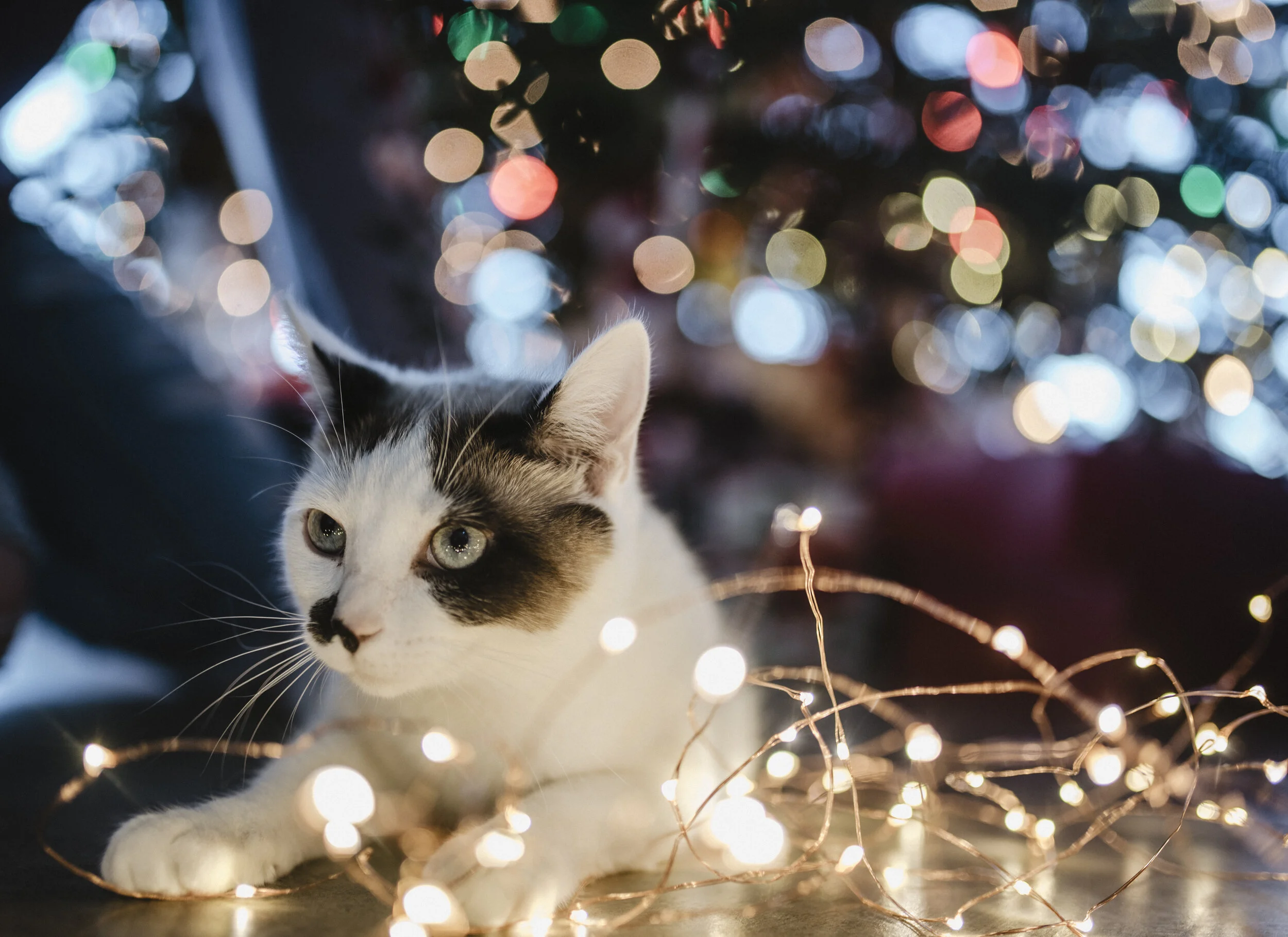10 Common Hazards for Pets at Christmas
The Christmas countdown has officially started! We all want to spend this festive season with our family, friends and loved ones enjoying all that Christmas has to offer. So we have come up with 10 common hazards all pet owners need to be aware of this Christmas so you can avoid an unexpected emergency visit to the vet!
1. Chocolate & lollies
Chocolate in all forms, especially dark or cooking chocolate can be very dangerous, even fatal for our pets. Symptoms of chocolate poisoning include vomiting, diarrhoea, rapid breathing, increased heart rate, tremors and seizures.
Also many lollies and sugar free treats that contain xylitol are toxic to pets. Such poisoning can lead to lethargy, loss of balance, permanent brain damage, liver failure and death.
If you suspect your pet has swallowed something toxic or is displaying signs of poisoning, contact your vet immediately.
2. Mince pies & Christmas puddings
Grapes, raisons, currants and sultanas are toxic to dogs. Many Christmas desserts such as mince pies and Christmas pudding are rich in these ingredients so keep them away from your furry friends.
3. Macadamia nuts
Macadamia nuts are often found at Christmas time in cookies, cakes and other indulgent treats. However they are not safe for dogs. Even a small amount of these nuts can cause severe symptoms including vomiting, ataxia, weakness, fever and muscle tremors. So if you are thinking of giving you pooch just a little taste, don’t!
4. Garlic, onion, chives & leeks
Garlic, onion, chives and leeks are in the Allium family and are poisonous to both dogs and cats if too much is eaten. These common ingredients are often found on the festive dinner table so avoid giving your pet the leftovers for their dinner or a treat.
5. Alcohol
Alcohol can cause severe liver, kidney and brain damage in animals. As little as a tablespoon can lead to problems for your pet so keep it out of reach.
6. Christmas tree, tinsel & ornaments
Christmas trees are a traditional festive decoration that the whole family enjoys. They can however pose many dangers for pets. Needles from the tree, tinsel and ornaments can all cause irritation, stomach upsets, choking and blockages in your pet’s stomach if chewed on or swallowed.
It is important to make sure your tree is stable and secure to prevent it from falling and injuring your pet.
You can also place a playpen around the tree to so it is unreachable to curious pets.
7. Wrapping paper & ribbons
Christmas is the season of exchanging gifts, which often involves wrapping and unwrapping presents with our loved ones. Wrapping paper can cause an obstruction in your animal’s stomach if lots of paper is eaten. So after opening gifts, make sure you dispose of wrapping paper properly.
Pets can also become easily tangled in ribbon, which can lead to serious injury. So enjoy the gift of giving, but make sure your pet is kept safe too.
8. Snow globes
Snow globes are often displayed or given as a gift at Christmas time. They are beautiful to shake and look at, however these fragile ornaments can cause danger to our pets if broken.
If a snow globe is accidentally broken, shattered glass can be harmful to our pet’s paws. Also most snow globes contain antifreeze, of which even a tablespoon swallowed by a cat can be lethal. So display them safely away from pets.
9. Fairy lights, batteries & candles
Electric and battery powered decorations can pose a serious threat to pets if they become tangled amongst, chewed on or if parts are swallowed so be mindful of pets when decorating your home.
Make sure candles are out of reach to prevent curious pets getting burnt or fires started from accidental knock overs.
10. Poisonous flowers & plants
We often decorate our homes or receive flowers and plants for Christmas. Be mindful that some can be toxic to your pet.
Lilies are highly toxic and potentially fatal to cats. Some types are also toxic to dogs. All parts of the plant, including the pollen, flower and leaves are poisonous so make sure they are well out of reach.
Other plants that can also be dangerous if eaten by your pet include poinsettia, azaleas, tulips, daffodils and carnations.
We hope you have a Merry Christmas and a safe and happy New Year. If you have any questions about your pets health or safety, please give us a call on 03 8784 4444.




